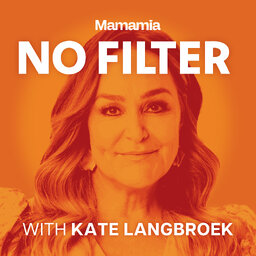Why Africa Brooke Left The Cult Of Wokeness
Writer and activist, Africa Brooke, used to call people out on the internet all the time - because this is what the culture wars told her she needed to do.
Until one day - she suddenly stopped.
In 2021, Africa wrote an open letter and posted it online. She called it: “Why I’m Leaving the Cult of Wokeness” and it immediately went viral. The letter changed her life, but not in the way she expected it to.
So what did she write in that letter? And how did she become unafraid? Was she cancelled?
In this bold and timely interview - Africa Brooke and Mia Freedman discuss the pressures, expectations and risks of living in the Age of Intolerance.
You can find out more about Africa Brooke here.
You can follow Africa on Instagram here.
THE END BITS:
Listen to more No Filter interviews here and follow us on Instagram here.
Listen to Mamamia’s satirical podcast, Cancelled, here.
Discover more Mamamia podcasts here.
Feedback: podcast@mamamia.com.au
Share your story, feedback, or dilemma! Send us a voice message, and one of our Podcast Producers will get back to you ASAP.
Rate or review us on Apple by clicking on the three dots in the top right-hand corner, click Go To Show then scroll down to the bottom of the page, click on the stars at the bottom and write a review.
CREDITS:
Host: Mia Freedman
You can find Mia on Instagram here and get her newsletter here.
Executive Producer: Naima Brown
Audio Producer: Thom Lion
Mamamia acknowledges the Traditional Owners of the Land we have recorded this podcast on, the Gadigal people of the Eora Nation. We pay our respects to their Elders past and present, and extend that respect to all Aboriginal and Torres Strait Islander cultures.
In 1 playlist(s)
No Filter
Riveting stories. Fascinating lives. Australia’s #1 interview podcast, with Kate Langbroek.Social links
Follow podcast
Recent clips

For 15 Years, No One Was Listening To Lainey Wilson. Now She's Everywhere.
52:29

Supermodel Rachel Hunter Was The Ultimate 90s Muse - Then She Walked Away
1:14:06

Michelle Slept by Her Son’s ICU Bedside for Most of Last Year
1:15:11
 No Filter
No Filter